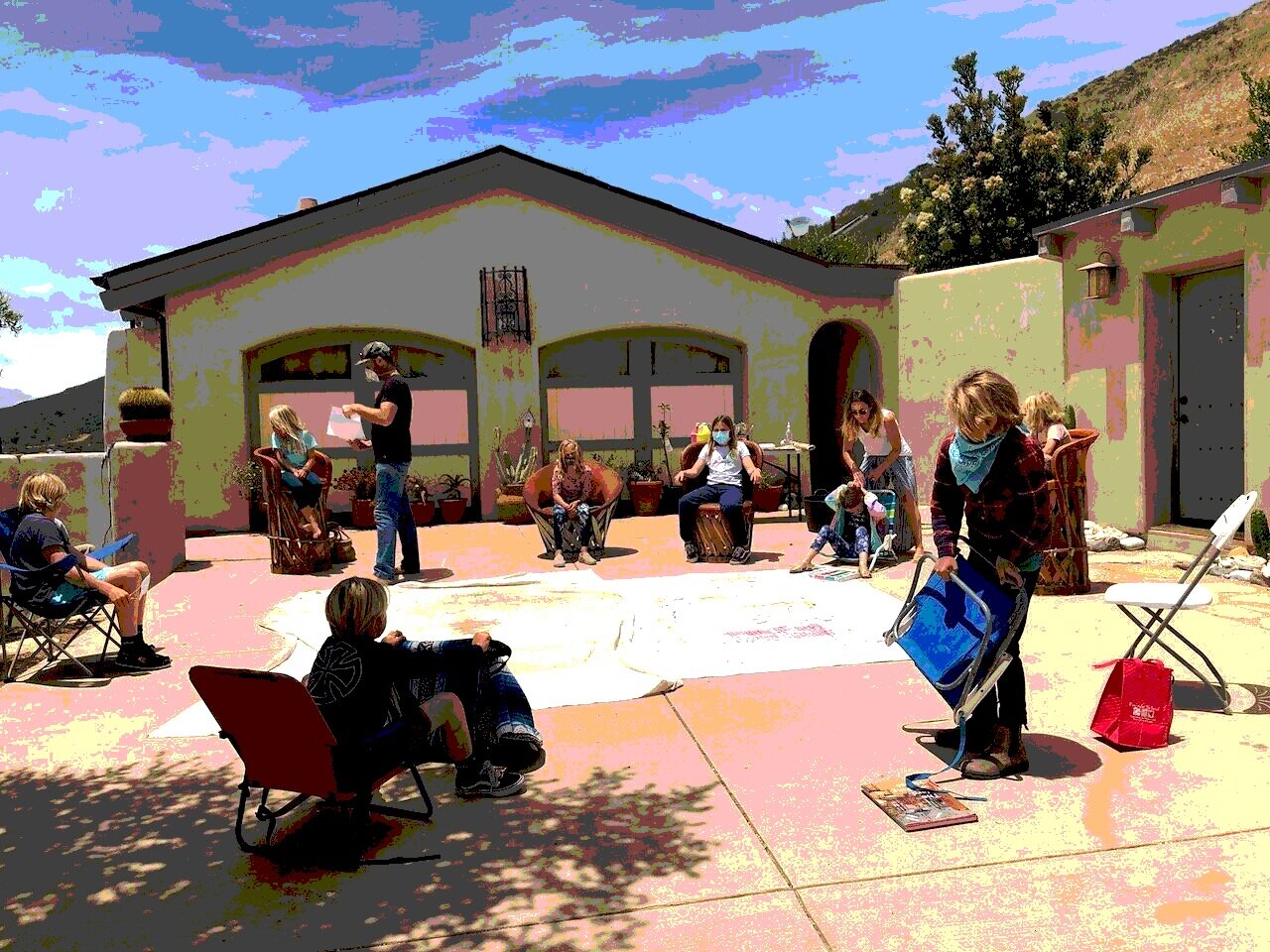When Simpleness and Duty Tender It
This week we launched a little summer program for the neighborhood kids. Outdoors, masked, and socially distanced, it was designed to be very low-risk and covid savvy. The participants all play together anyway, so I figured we weren’t introducing any strangers with unknown connections. It was meant to be a gift to the community, a way to be of service, a venue for teaching the children and providing some activities during this strange time. Two days a week, two hours each session. Easy…right?
I came home utterly exhausted. I can’t believe I was a teacher in my working years! I honestly don’t know how I did it. Maybe it was just a matter of having been much younger then. Or maybe I’m forgetting how much effort went into the front end, establishing a culture in the classroom, building a foundation and gradually working our way into more elaborate tasks. A lot of the work is preliminary and invisible.
Oh, I knew that kids were wanting summer fun, but I actually believed we could weave in some writing activities. I even believed that these might pass as fun…and maybe they still will. I have quite a stack of prompts, examples, and ideas. But we’re going to have to backtrack a bit. I can see that now.
Kit started with an art activity: observation and portrait painting on paper bags. This quickly devolved into splattering of paint onto paper bags and beyond. Always resourceful, Kit used the opportunity to tell one of the fledgling artists about Jackson Pollack, who actually sold his canvasses of splattered paints for millions of dollars.
“Cool,” said the boy. “Maybe that’s how I can finally pay my bicycle off.”
Someone was painting his hands blue, someone else had mixed paints into a beautiful shade of lavender, and one little girl was putting the finishing touches on a miniature detailed figure, one of few representations that looked humanoid. We tried to steer the painting activity into something akin to language arts. Kit called it critiquing the work. Maybe the portraits were abstract renditions of the energy and emotion the artist perceived in the subject. Shall we talk about that? Better yet, let’s take a break and let Virginia read us the book she created. Pretty soon we’ll all be writing stories and sharing them…won’t that be fun?
First and foremost, a writer notices things. We sent them on an observation walk. They were to wander around the property noting sounds, sights, smells, and tactile details. “Take ten minutes, come back, and we’ll see what you’ve discovered.” Everyone scattered.
“Get off the roof! The roof is off limits!” Words I never thought we’d need to utter, but it had to be said. It’s now a rule at this little un-school. The age range is from four to thirteen, and it’s the older boys that push the limits. They have a certain kind of energy that I’ve forgotten how to channel.
We improvised. We checked our watches often, wondering at their slowness. We dribbled to a conclusion.
When I started this, I kept thinking of what Theseus says in Midsummer Night’s Dream about the play about to be performed by the ragtag amateurs. Go bring them in, he says, I will hear this play: “For never anything can be amiss when simpleness and duty tender it.”
And I suppose that’s how we are, my fellow teacher volunteers and I…simple and dutiful. Certainly well-meaning. Aspirational, even.
We’ll try it again next week. It’s a work in progress.
